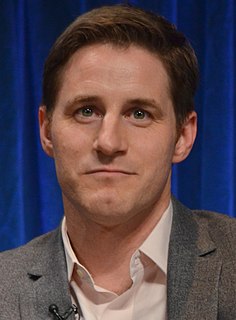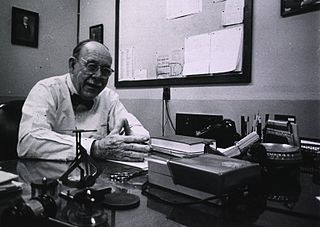A Quote by Matt Haig
Neuroscience is a baby science, a mere century old, and our scientific understanding of the brain is nowhere near where we'd like it to be. We know more about the moons of Jupiter than what is inside of our skulls.
Related Quotes
What a dull universe it would be if everything in it conformed to our expectations, if it held nothing to surprise or baffle us or confound our common sense. A century ago no one foresaw the existence of black holes, an expanding universe, oceans on Jupiter's moons, or DNA. What could be more enriching than to know that we share a common origin with all living things, that we are kin to chimpanzees, redwoods and mollusks? And isn't it a source of wonder to realize that the iron in our blood and the calcium in our bones were created in the bellies of supernovas?
Now with the allocation and the understanding of the lack of understanding, we enter into a new era of science in which we feel nothing more than so much so as to say that those within themselves, comporary or non-comporary, will figuratively figure into the folding of our non-understanding and our partial understanding to the networks of which we all draw our source and conclusions from.
Scientific knowledge is, by its nature, provisional. This is due to the fact that as time goes on, with the invention of better instruments, more data and better data hone our understanding further. Social, cultural, economic, and political context are relevant to our understanding of how science works.
Superhero science has taught me this: Entire universes fit comfortably inside our skulls. Not just one or two but endless universes can be packed into that dark, wet, and bony hollow without breaking it open from the inside. The space in our heads will stretch to accommodate them all. The real doorway to the fifth dimension was always right here. Inside. That infinite interior space contains all the divine, the alien, and the unworldly we’ll ever need.
The science can tell you that the thousands of pseudo-scientific parenting books out there - not to mention the 'Baby Einstein' DVDs and the flash cards and the brain-boosting toys - won't do a thing to make your baby smarter. That's largely because babies are already as smart as they can be; smarter than we are in some ways.
I have begun to feel that there is a tendency in 20th Century science to forget that there will be a 21st Century science, and indeed a 30th Century science, from which vantage points our knowledge of the universe may appear quite different than it does to us. We suffer, perhaps, from temporal provincialism, a form of arrogance that has always irritated posterity.





































